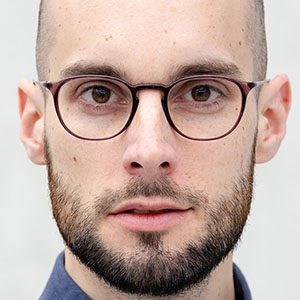
Christoph Solstreif-Pirker
Country: Austria
Organization: University College of Teacher Education Styria
Short CV
Christoph Solstreif-Pirker, Ph.D., is a Professor of Aesthetic Education at the University College of Teacher Education Styria, Graz, Austria, a person-centered psychotherapist (in-training, APG.IPS Vienna), a student counselor at the University of Graz, and a practicing artist working on performative research, encounter-investigations, painting, drawing, sound, and text. After studying music and architecture in Graz and Copenhagen, he completed his Ph.D. with a thesis on experiential approaches toward anthropocenic landscapes in 2019 (“Being-together-with the world-without-us: Performative investigations into the traumatized planetary space”), followed by an MA in philosophy and psychoanalysis supervised by feminist philosopher Bracha L. Ettinger.
Christoph’s work has been widely received and appeared in JAR: Journal for Artistic Research, Ruukku: Studies in Artistic Research, PCS–Psychoanalysis, Culture, Society, and CLS–Comparative Literature Studies, among other edited anthologies. He is preparing his first monograph on Matrixial Breath and Ettingerian Environmental Ethics, to be published by Routledge in 2024.
Short presentation
Title: “If you do what is right, carry!” – (Re-)Introducing the carrying paradigm within the Person-Centered Approach (with the voices of Lévinas and Ettinger)
An etymological look at the first pages of the Old Testament shows that the human being is, first and foremost, inscribed with a single quest: for in Hebrew, “human” (אנוש) also always means “to carry” (נושא). This connotation manifests when God speaks to Cain, who is envious of his brother Abel: “Why are you angry? Why is your face downcast? If you do what is right, carry!” To carry the other unconditionally seems to be the first commandment that humans receive from God and that which constitutes being human(e) in the first place.
In this presentation, I speculate on how this fundamental narrative about the human-as-carrier might impact the person-centered approach. What does it mean to carry the other, particularly within the therapeutic relationship? Is this “carrying paradigm” already inherent in Rogers’ central concepts or going beyond his conceptual triumvirate of empathy, congruence, and acceptance?
In a 1995 essay, Peter F. Schmid pointed to philosopher Emmanuel Lévinas and claimed that “his anthropology (…) is highly significant for further developing the person-centered approach.” Starting from Lévinas’ thinking of alterity, I build a bridge to contemporary feminist philosopher and psychotherapist Bracha L. Ettinger, who leads Lévinas’ radical ethics from its sacrificing claim to a more caring, com-passionate, and vulnerable orientation, similar to the prenatal (“matrixial”) relationship between mother and child in the womb. How does the therapeutic relationship change as soon as the other, as Lévinas and Ettinger highlight, overthrows the natural order (also of person-centered growth and self-actualization), and I become sub-jected to her/him/them, taken into carrying obligation?
In juxtaposing Lévinas and Ettinger with person-centered theory, a polyphonic dialogue unfolds that adds a specific ethical and feminine dimension to the person-centered approach that seems crucial in times of global crises (also within the person-centered field itself). Carrying the other (and being carried by her/him/them) might be a (still) undiscovered potentiality of the person-centered approach.

